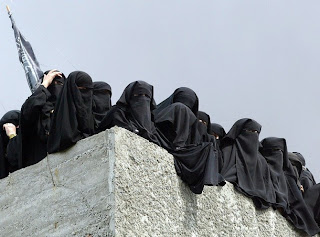>
Category Archives: belief
>Buddha
>
Stephen Schwartz
There can be miracles, when you believe
Though hope is frail, it’s hard to kill
Who knows what miracles you can achieve
When you believe, somehow you will
You will when you believe
Basil Hall Chamberlain
Voltaire and the other eighteenth-century philosophers, who held religions to be the invention of priests, have been scorned as superficial by later investigators. But was there not something in their view, after all? Have not we, of a later and more critical day, got into so inveterate a habit of digging deep that we sometimes fail to see what lies before our very noses? Modern Japan is there to furnish an example. The Japanese are, it is true, commonly said to be an irreligious people. They say so themselves. Writes one of them, the celebrated Fukuzawa, teacher and type of the modern educated Japanese man: “I lack a religious nature, and have never believed in any religion.” A score of like pronouncements might be quoted from other leading men. The average, even educated, European strikes the average educated Japanese as strangely superstitious, unaccountably occupied with supra-mundane matters. The Japanese simply cannot be brought to comprehend how a “mere parson” such as the Pope, or even the Archbishop of Canterbury, occupies the place he does in politics and society. Yet this same agnostic Japan is teaching us at this very hour how religions are sometimes manufactured for a special end—to subserve practical worldly purposes.
>織田信長
>
>24.kg
>
>Benjamin Fulford
>
>Mohandas Karamchand Gandhi
>The weak can never forgive. Forgiveness is the attribute of the strong.
There is more to life than simply increasing its speed.
We must be the change we wish to see.
The best way to find yourself is to lose yourself in the service of others.
As soon as we lose the moral basis, we cease to be religious. There is no such thing as religion over-riding morality. Man, for instance, cannot be untruthful, cruel or incontinent and claim to have God on his side.
God has no religion.
>Hank Fu
>
Thich Nhat Hanh
Nothing remains the same for two consecutive moments. … Confucius, while looking at a stream, said, “It is always flowing, day and night.” The Buddha implored us not just to talk about impermanence, but to use it as an instrument to help us penetrate deeply into reality and obtain liberating insight. We may be tempted to say that because things are impermanent, there is suffering. But the Buddha encouraged us to look again. Without impermanence, life is not possible. How can we transform our suffering if things are not impermanent? … How can the situation in the world improve? We need impermanence for social justice and for hope.
If you suffer, it is not because things are impermanent. It is because you believe things are permanent. When a flower dies, you don’t suffer much, because you understand that flowers are impermanent. But you cannot accept the impermanence of your beloved one, and you suffer deeply when she passes away.
If you look deeply into impermanence, you will do your best to make her happy right now. Aware of impermanence, you become positive, loving and wise. Impermanence is good news. Without impermanence, nothing would be possible. With impermanence, every door is open for change. Impermanence is an instrument for our liberation.
>अनिच्चा
>
>James Redfield
>
>Louis Theroux
>
釈徹宗
仏教は因果律に基づいています。いかに仏教にバリエーション多しといえども、これだけははずすわけにはいかない、というほどの仏教における基本的立脚点です。ご存知のように、因果律とは、あらゆる現象や存在には原因がある、原因があれば必ず結果があるという原則です。この法則に例外はない、ということで仏教は成り立っています。因果律の立場もいろいろあるんですが、仏教の因果律は縁起という相互依存性を強調するところに特徴があります。
さて、仏教で縁という概念は事象成立の条件です。また、原因と結果という主要因に関わる、二次的要因と考える場合もあります。いずれにしても、あらゆる事象は、さまざまな要因が複雑に絡み合い、一時的に成立したり存在したりしている、と認識します。言ってみれば、認識するための仮説モデルなんですね。この認識モデルによって、さまざまな現象や存在を分析すれば、生きて行く上での苦は克服される、とシャカは考えました。
ところで「親の因果が子に報い…」というフレーズがありますが、間違っています。正確には「親の因が、子に果…」といわねばなりません。でも親の因が、子に結果として出るというのはねじれた仏教思想です。本来、自因自果といって、自分のまいた種が自分にふりかかるのが因果律ですから。つまり、自らの行為や思考が、自らの未来を形成していくわけです。
このように、仏教では宿命論や神の意思による決定論ははっきりと否定されます。
>司馬遼太郎
>
>HIJK
>
>岡本公三
>
>福島敏雄
>
>N. J. Lindquist, W. E. Nelles
>Pew Forum on Religion & Public Life
Islamization Watch
>huangrs555
>释永信
>
>Ray Billington
>
>ΤΟ ΣΥΜΒΟΛΟΝ ΤΗΣ ΠΙΣΤΕΩΣ
>
>Бори́с Ви́кторович Са́винков
>
>Jakob von Uexküll
>John C. Lilly
>
>Dragan Stojković
>
>Macy’s
>Eliza Griswold
>
Bradley Sickler
The relationship between science and religion is frequently commented on, but rarely understood with clarity. Though very few people would deny the importance of religion or of science, it is difficult to see what their importance is to each other. On the hostility theory, they make incompatible claims, and they pose grave risks to each other, and to society. Which camp endangers society–religion or science–and which camp helps it is the point of disagreement. But on another theory, the two are not opposed at all. According to some commentators, religion and science work together to present a fuller understanding of the world by mutually enlightening each other. Still other people think that science and religion pose no risks to each other, but they do not support each other either; they are simply concerned with isolated sets of questions. Since it is unlikely that either science or religion will pass from the stage any time soon, it is, and will continue to be, orth our time to reflect on their relationship.
>出口保夫
>
Georges Brassens
Mourir pour des idées, l’idée est excellente.
Moi, j’ai failli mourir de ne l’avoir pas eu’,
Car tous ceux qui l’avaient, multitude accablante,
En hurlant à la mort me sont tombés dessus.
Ils on su me convaincre et ma muse insolente,
Abjurant ses erreurs, se rallie à leur foi
Avec un soupçon de réserve toutefois:
Mourons pour des idées, d’accord, mais de mort lente,
D’accord, mais de mort lente.
>Thomas W. Pogge
>
>John Mayer
>
>下條信輔
>
>麻倉葉
>
>澤地久枝、中村哲
>
Rina Castelnuovo
ニュー・エイジ・コネクション
Everyone is aware of their five basic senses. What everyone is not so well aware of is their sixth sense – a connection to something more and greater than their physical senses.
>上出洋介
>
>Émile Coué de la Châtaigneraie
>
- Toute idée que nous avons dans l’esprit tend à devenir une réalité dans l’ordre du possible. Ainsi l’idée de guérison peut produire la guérison. Ou bien encore, sur le plan psychologique, considérer comme facile une chose à réaliser en facilite effectivement la réalisation.
- Notre être inconscient ou imaginatif, qui constitue la partie cachée de notre moi, détermine nos états physiques et mentaux. Il est en réalité plus puissant que notre être conscient et volontaire, qu’il englobe entièrement, et c’est lui qui préside à toutes les fonctions de notre organisme et de notre être moral. Donc chaque fois qu’il y a conflit entre l’imagination et la volonté, c’est toujours l’imagination qui l’emporte.
- Imagination et volonté doivent par conséquent travailler en synergie : lorsque la volonté et l’imagination sont en accord, elles ne s’additionnent pas l’une à l’autre, mais leurs forces se multiplient l’une par l’autre.
- L’imagination peut être conduite par le moyen d’une autosuggestion méthodique.
>Christian Rosenkreuz
>Jesus mihi omnia, nequaquam vacuum, libertas evangelii, dei intacta gloria, legis jugum.
>福岡正信
>無耕起、無肥料、無農薬、無除草
>กรุงเทพมหานคร
>
>Jamahiriya
>Great Socialist People’s Libyan Arab Jamahiriya
>Ghost Busters
>







